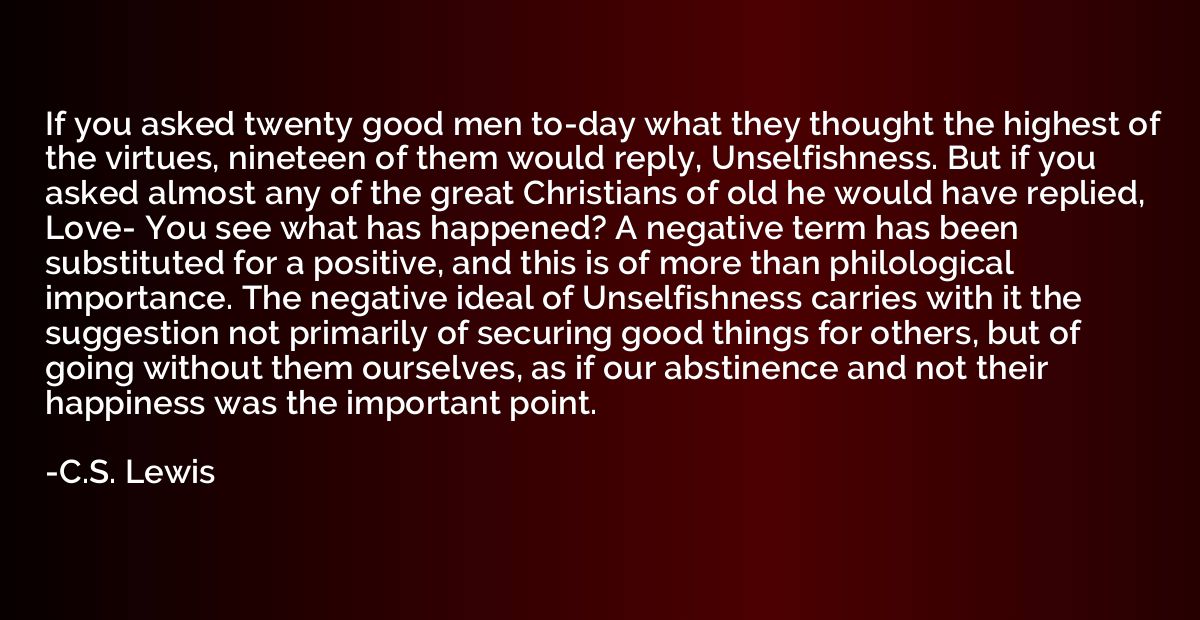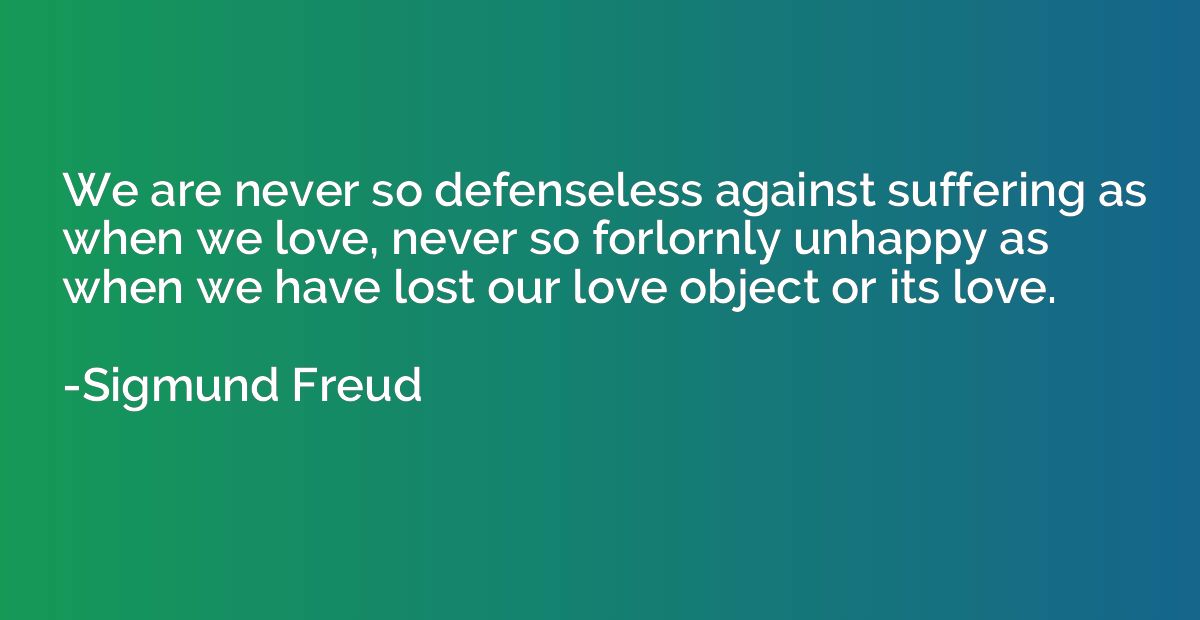Quote by C.S. Lewis
If you asked twenty good men to-day what they thought the highest of the virtues, nineteen of them would reply, Unselfishness. But if you asked almost any of the great Christians of old he would have replied, Love- You see what has happened? A negative term has been substituted for a positive, and this is of more than philological importance. The negative ideal of Unselfishness carries with it the suggestion not primarily of securing good things for others, but of going without them ourselves, as if our abstinence and not their happiness was the important point.

Summary
This quote highlights a contrast between modern perspectives and the views of "great Christians of old" regarding virtues. While most people today may consider unselfishness as the highest virtue, the author suggests that these great Christians would have focused on love instead. The author argues that there is a significant difference between these two ideals - unselfishness implies going without personal gains for the sake of others, while love prioritizes the happiness and well-being of others. This substitution of a negative term for a positive one reveals a shift in understanding and impacts how we perceive the importance of our own sacrifice versus the welfare of others.
By C.S. Lewis














